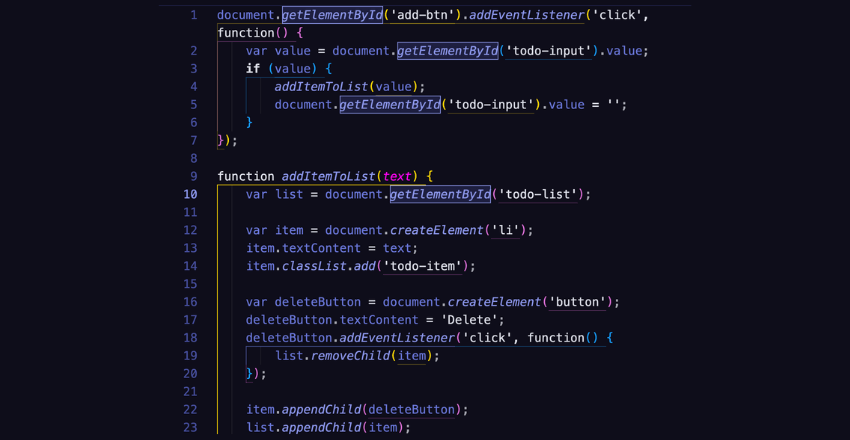JavaScript: Have you ever heard about it? If you’re a developer, a digital aficionado, or just someone curious about the web, you surely have.

For those unfamiliar, allow me to introduce it. JavaScript is an omnipresent, potent force that powers much of the internet. Today, I’m going to show you why it’s not only important but essential for a captivating web experience.
What is JavaScript?
JavaScript is the beating heart of modern websites and applications. Born in 1995, it has grown to become the most popular programming language for professional developers in the world, according to the Stack Overflow Developer Survey for 2023. But what exactly does it do?

JavaScript allows you to add dynamic and interactive elements to your website. Without JavaScript, your website would be static and lifeless, like a photograph.
With JavaScript, it comes to life, transforming into an engaging movie that can react to user input. It’s what allows a user to interact with a website, making web pages respond to actions without needing to load a new page in response to every action.
The Power of JavaScript: Interactivity
Why does interactivity matter? Why do we need websites to be more than static pages? Let’s look at Amazon, a prime example of JavaScript in action. When you hover over a product, a small window pops up displaying key details, right? This information isn’t static – it’s delivered via JavaScript.
Imagine the alternative. Imagine every time you wanted to view product details, you had to click on the product and load a new page. How frustrating and time-consuming that would be!
This instant feedback and interaction foster a more engaging user experience, which translates directly into customer satisfaction and business success.
JavaScript and Beyond: Frameworks and Libraries
But there’s more to JavaScript than making pages interactive. Ever heard of React.js or Node.js? They are JavaScript frameworks and libraries, enabling developers to build complex applications quickly. Twitter, Airbnb, Netflix – these aren’t just websites, but highly sophisticated applications.
They handle massive amounts of data and a plethora of user interactions every second. Without JavaScript, and more specifically these frameworks and libraries, building such applications would be prohibitively difficult.
The Ubiquity of JS: Not Just for Web Anymore
It’s time for a revelation: JS is not just for your browser anymore. It’s expanding its dominion into realms traditionally occupied by other languages. Node.js, mentioned earlier, is used for server-side scripting—running scripts server-side to produce dynamic web page content before the page is sent to the user’s web browser. JavaScript has also crept into the world of mobile app development with technologies like React Native. It’s even made its way into IoT (Internet of Things) devices.
The Learning Curve: Why You Should Learn JavaScript
Do you aspire to build your own website, or even your own web app? Then learning JS is no longer a luxury—it’s a necessity. The good news is that JS, compared to other programming languages, is relatively easy to learn. There are countless resources online, and the supportive developer community is enormous.
JS is like the Swiss Army knife of web development. It’s versatile, it’s powerful, and it’s everywhere. As we venture further into this digital age, the role of JavaScript only seems to grow larger. So, why not equip yourself with this potent tool?
Remember, a journey of a thousand miles begins with a single step. Why not let that step be learning JS?
JavaScript: The Lingua Franca of Web

So, you’re convinced that JS is important. But why is it used so universally? Why not any other programming language? Well, one of the biggest reasons is compatibility.
JS is the only language that runs natively in all modern web browsers. This means no matter what device or browser a user is on, if it’s a modern one, it will run JS.
Flexibility of JavaScript
One might ask, “Is JS flexible enough to handle all my coding needs?” The answer is a resounding yes. JS is incredibly flexible. You can start using it right away in your HTML without any extra setup.
But you can also use it in more complex ways, like building a complete server-side application with Node.js or a mobile application with React Native.
For instance, take a look at Slack, a highly popular communication platform. Slack uses Electron, a JS framework, to build its desktop app. This means Slack’s developers write code once and deploy it on multiple platforms – Windows, macOS, Linux – all with JS.
JavaScript and The Community
Is it hard to find help or resources while working with JS? Absolutely not. The JS community is one of the most vibrant, welcoming communities in the tech world. There are numerous forums, blogs, online courses, and resources available at your disposal.
For instance, StackOverflow, a prominent online community for developers, reported in their annual survey that JS has consistently been the most popular language for several years running. This level of widespread use guarantees a huge base of fellow developers ready and willing to help, discuss, and innovate.
JavaScript’s Evolving Ecosystem
“But isn’t JS an old language?” you might ask. True, it is, but that doesn’t mean it’s out of date. JS continues to evolve and improve. The ECMA International group oversees the standardization of JS, and they release a new version of the standard every year.
These updates add new features, streamline existing ones, and generally make JS even more powerful and easier to use. For example, the introduction of arrow functions in ES6 significantly simplified function declarations and made JS code cleaner and easier to read.
Frequently Asked Questions About JavaScript

1. Why do we use JavaScript in HTML?
JS is used in HTML to make websites interactive and dynamic. It can manipulate HTML elements, respond to user actions like clicks or key presses, and even fetch data from a server without needing to refresh the page. Without JavaScript, web pages would be static and wouldn’t respond to user interaction.
2. What is JavaScript with an example?
JS is a programming language that allows for dynamic behavior in web pages. For example, consider a button on a webpage that, when clicked, reveals a hidden message. This can be achieved with JavaScript as follows:
<button onclick="revealMessage()">Click me!</button>
<p id="secretMessage" style="display: none;">Hello, world!</p>
<script>
function revealMessage() {
document.getElementById('secretMessage').style.display = 'block';
}
</script>In this example, when the button is clicked, JavaScript changes the display style of the hidden paragraph, making it visible.
3. Is JavaScript used for front-end or backend?
While traditionally JavaScript was exclusively a front-end language used in browsers, it has expanded to server-side (backend) development with the advent of Node.js. So, JavaScript is used in both front-end and backend development today, allowing for full-stack JavaScript development.
4. What language is JavaScript?
JavaScript is a high-level, interpreted programming language. It’s one of the three core technologies of the World Wide Web, alongside HTML and CSS. Despite its name, JavaScript is not related to the Java programming language.
5. What is the use of JavaScript in HTML?
JS is used in HTML to make the web page dynamic and interactive. It enables features like form validation, dynamic content changes, animations, and handling user interactions. Without JavaScript, the webpage would remain static and unresponsive to user actions.
6. What is JavaScript according to W3Schools?
According to W3Schools, JS is the programming language of the Web. It is lightweight, interpreted, and allows client-side script to interact with the user, control the browser, communicate asynchronously, and alter the document content that is displayed.
7. Why do we use JavaScript in web development?
We use JS in web development to create interactive websites. It allows us to respond to user actions, manipulate HTML elements, validate input data, handle cookies, create animations, and much more. Furthermore, with Node.js, JS can be used to write server-side code as well.
8. Where can I download JavaScript?
JS is a built-in feature of all modern web browsers and doesn’t need to be downloaded separately. To start writing JavaScript, you simply need a text editor and a browser. You can also use online editors like CodePen, JSFiddle, or Repl.it for quick testing and prototyping.
JavaScript: The Future
It’s clear that JS isn’t just a tool of the present—it’s a tool of the future. Its uses continue to expand beyond the confines of the browser. The rise of JavaScript-powered APIs, serverless technologies, and IoT devices is a testament to JS’s adaptability and potential.
So, are you ready to start your journey with JS? Ready to bring your web pages to life, engage users more effectively, and be part of the digital revolution that’s sweeping our world? Because that’s what learning JS means. And believe me, once you start this journey, there’s no looking back.
Nicole is a highly accomplished technical author specializing in scientific computer science. With a distinguished career as a developer and program manager at Accenture and Nike, she has showcased exceptional leadership skills and technical expertise in delivering successful projects.
For the past 22 years, Nicole’s unwavering interest has been in JavaScript web development. Since the early days of its release, she has immersed herself in the intricacies of the language, exploring its vast potential and harnessing its capabilities to create dynamic and interactive web solutions. Nicole’s expertise in JavaScript extends to various frameworks and libraries, positioning her as a trusted authority in the field.
As a technical author, Nicole remains committed to staying at the forefront of emerging technologies and driving innovation in scientific computer science. Her expertise in JavaScript web development, coupled with her experience as a developer and program manager, positions her as a valuable resource for professionals seeking guidance and best practices. With each publication, Nicole strives to empower readers, inspire creativity, and push the boundaries of scientific computer science.







